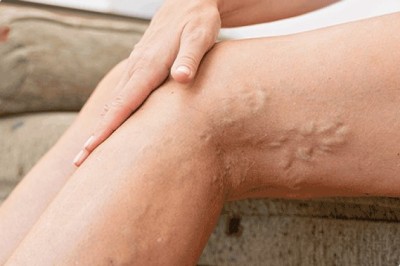views

Mouth ulcers affect women, but also men, sometimes. Oral ulcers can occur early in life, even in childhood, around the age of 8-10 years. The size of the lesions is rounded, oval or irregular, with red brims and a white or yellow halo.
Their duration depends on the type of ulcers and goes from one to three weeks, usually. If they last further, there is also the risk of bacterial infection.
Types
There are three types of aphthous ulcers:
1. Simple aphthous ulcers
2. Complex aphthous ulcers
3. Herpetiform ulcers
Simple aphthous ulcers are formed by a single lesion with small or large sizes.
Depending on the size, you may have:
- minor aphthous ulcers, with a size of less than 5 mm
- major aphthous ulcers, with a larger size (more than 5 mm).
The complex aphthous ulcers, instead, occur with clusters of several lesions that can literally invade your mouth. When this happens, the disorder is called aphthous stomatitis. Often, it is just this type of stomatitis which is recurrent and prevents you from drinking, eating, and chewing. Recurrent aphthous stomatitis is capitalized with the acronym RAS.
However, even a single, large aphthous ulcer can cause severe discomfort.
Herpetiform aphthous ulcers are not caused by a virus. Those are a type of complex aphthous ulcers that tend to fuse each other, forming a single, irregular and large ulcer. Often, herpetiform ulcers can cause scars on the oral tissue.
Beware: don’t mistake herpetiform with herpetic ulcers. The latter are caused by the herpes simplex virus and are called cold sores.
Aphthous Ulcer Causes
Even though most people in the globalized world suffer from aphthous ulcers, the true cause of their occurrence, and recurrence, is still unknown. It has been also seen that clinicians and dentists are not fairly skilled to treat these oral lesions.
If you see your doctor to treat your aphthous ulcers, you’ll be said that they are caused from:
- Stress
- Hormonal swings
- Vitamin deficiency
- Celiac disease
- Inflammatory bowel syndrome
- Ulcerative colitis
- Crohn’s disease
- Food allergy
- Oral traumas, such as bites
- Toothpaste ingredients
These are the known causes of the mouth ulcers and must be properly investigated, but, according to my personal experience as a patient, recurrent aphthous ulcers may have other causes that doctors, often, overlook. I have had my mother suffering from recurrent ulcers in the mouth.
I have always seen her complaining about the pain and the difficulty to eat, talk and drink.
My mummy has suffered from mouth ulcers since I was a little girl. I think she started suffering when she was a little girl, as well. Just think that when the pain became unbearable, she put a paper napkin in the mouth, to separate the lips among them and soothe pain and burning.
I never saw a person suffering like her until she was diagnosed with a thyroid disorder. The same disorder she transmitted to me: Hashimoto’s thyroiditis and all consequences that come from it.
Hence, another cause of recurrent aphthous ulcers is genetic. If a relative of yours has had aphthous ulcers, you may also have them. But genetic causes, often, are not, yet, enough to explain the development of lesions in the oral cavity.
Yes, these ulcers can appear on the upper oral cavity, on the lower oral cavity, around gums, cheeks, under and below the tongue, and even in the lateral walls of the throat, with mild or severe symptoms and different duration. Let’s go below to better discover them.
Aphthous Ulcers: Symptoms and Duration
Before their arrival, you may perceive tingling and a sort of prickle or sting, like a needle that pinches the surface of your mouth.
Soon after, a red spot appears. This is the start of the inflammation that, step by step, in the lapse of a few hours or a day, forms the classical aphthous ulcer with the white halo. In this stage, you acquire the difficulty to eat, talk and chew and a severe discomfort made of pain and burning.
Then, magically, the ulcers heal spontaneously, and, often, with no treatment and after a certain duration.
A single small ulcer on the lips lasts from two days to a week. A larger ulcer, usually, lasts from 10 to 15 days, while clusters of ulcers can last until three weeks. A mouth ulcer which does not heal may be a sign of oral cancer, but this occurrence is very rare with aphthous ulcers.
It is more possible that mouth ulcers occur several times per month. In the case of my mummy, she had them three times per month. A true hell!
We fought together to get rid of our recurrent aphthous ulcers. We have investigated, and with the help of our doctors we have excluded the most common causes of these lesions.
We got tested for celiac disease, also, but the tests were negative. After several years of suffering, we understood the syndromes associated with our oral ulcers. Go to the subsequent paragraph to discover them.
Syndromes Associated with Recurrent Aphthous Stomatitis
My mom and I suffer from Hashimoto’s thyroiditis, a complex autoimmune disease that can trigger systemic inflammation.
There isn’t official information about the correlation between this disease and aphthous recurrent stomatitis.
The systemic syndromes associated with aphthous ulcers (the official ones) are:
- Behçet’s disease
- PFAPA syndrome
The first is a multisystemic, chronic and recurrent vasculitis that causes sores in several regions of the body, such as mouth, eyes, blood vessels, joints and genitals.
The second is a fever occurring periodically in 2–5-year-old children, and causing pharyngitis, adenopathy and aphthous ulcers.
If you have ulcers in the mouth, maybe you are not a toddler and not even you have the disease of Behçet. However, something that is somehow systemic could be involved.
I heard this hypothesis for the first time from my dentist. When he saw the awful ulcers in my mom’s mouth, he suggested they could be triggered by a systemic autoimmune disease and urged us to better investigate with the help of another doctor.
Unfortunately, as already said in the previous paragraphs, no other doctor helped us discover the true cause of our aphthous ulcers.
Only later in time, through several personal trials, I discovered that my mouth ulcers were caused by the contact with foods that also triggered gastrointestinal disorders.
These foods were dairy and wheat. When I ate these types of food, I immediately had stomach pain and soon after, aphthous ulcers, with mild fever and swollen lymph nodes.
Further clinical tests confirmed that my mom and I had intolerance to dairy and wheat.
In addition to all that, I had gluten sensitivity, also. Thanks to my endocrinologist, I discovered that my thyroid autoimmune disease caused food intolerance, gluten sensitivity, gastrointestinal disorders and aphthous ulcers.
When you have an inflammatory autoimmune disease, such as the one I have, the inflammation becomes systemic, it means that it spreads across several regions of the body and when it affects the intestine, you can also have a poor absorption of vitamins and aphthous ulcers.
Vitamins, in fact, have high healing properties for oral mucosa, especially the ones of the B group. Vitamin C, instead, is acidic and may trigger aphthous ulcers.
We don’t need to be scientists to understand that every acidic substance has ulcerative properties. If you pour acid on your skin, you’ll get burned! If you eat acidic food, your oral mucosa gets burned! And the mouth ulcers are simply the sign of micro burns.
If the mouth ulcers occur spontaneously, with no touch with acidic food, consider they may be associated with the systemic disorder I described here, namely: food intolerance and gastrointestinal disorders triggered by an autoimmune disease.
Indeed, since I avoided the food causing me intestinal problems, I haven’t had aphthous ulcers anymore.
Furthermore, intestine and oral mucosa are closely linked among them, because they share an important defense for your immune system: the microbiome. That is a set of microorganisms which stimulate the good functioning of our immune system.
The microbiome is, in fact, in our intestine and in the oral mucosa. That is why a regular intake of probiotics can soothe intestinal disorders and heal aphthous ulcers, at the same time.
Nowadays, several retailers sell toothpastes containing probiotics. I have never tried them, but if you are struggling with recurrent ulcers in the mouth, consider trying this type of toothpaste.
Substances Associated with Aphthous Ulcers
In addition to acidic food, and food sensitivities, there are other substances which can trigger recurrent ulcers in your mouth.
One of them is Nickel. Nickel is a metal that can contaminate food. That is why you should avoid eating canned food. The metal of cans, in fact, contaminates food.
Food Associated with Aphthous Ulcers
In addition to canned food, there are also other foods that may cause oral ulcers. What are these foods?
The foods causing mouth sores are all the ones that may trigger sensitivities, intolerance or allergies, namely
- wheat
- gluten
- eggs
- nuts
- peanuts
- fish
- crustaceans
- cow’s milk
- soy
- corn
- chocolate
Moreover, there are foods that can regularly cause mouth ulcers. They are called aphthous foods.
I am talking about:
- Strawberries
- Kiwi
- Pineapples
- Grapefruit
- Melons
- Oranges
Their effect depends on the fact they are acidic foods and very rich in vitamin C. This vitamin is anyway necessary (and fundamental) for our immune system. To avoid the aphthous effect of these foods, doctors often prescribe vitamin C supplements.
When you have mouth ulcers, other types of food to avoid are:Spicy foods such as hot sauce and chili peppers
- Salty foods, such as popcorn and pretzels
- Saturated fatty acid rich processed food and cold cuts.
The aforementioned foods have the effect to irritate, and, hence, ulcerate the oral mucosa and facilitate intestinal inflammation. The latter, in turn, alters the gut microbiome, causing poor vitamin absorption and aphthous ulcers.
However, when aphthous ulcers occur, they are sometimes hard to cure only through diet. In this case, especially for long-lasting canker sores, you could need particular medications.
Aphthous Ulcer Treatment
There are several options to treat Aphthous ulcers, some of them are chemical, others are more natural.
When the mouth ulcers last too much, they may cause oral infections. In this circumstance, the best treatment is based on antibiotics, it is better if these are taken as a mouthwash. In this field, the best is the one with chlorhexidine.
This substance, in fact, has a high antibacterial power, while mouthwash with a combination of amoxicillin and chlorhexidine proved to cause antibiotic resistance.
Chlorhexidine is in reality used to treat teeth inflammations and must be prescribed by a dentist. But the oral rinse with a germicide like chlorhexidine reduces the risk of severe infections from recurrent aphthous ulcers. The only side effect is that the mouthwash increases the sensation of oral pain and burning.
To relieve the pain, your doctor could also prescribe mouthwash with lidocaine.
For recurrent aphthous stomatitis, you can also get prescribed with another antibiotic mouthwash: it is the one with doxycycline. This antibiotic can be taken as pills, also, but its prolonged intake is not advisable, because it may cause mouth candida.
If after many days, your aphthous ulcer becomes too white, it is possible that the recurrent stomatitis gave rise to oral candida. With this condition, the best treatment is Mycostatin. That is an oral suspension based on nystatin, an antibiotic obtained by a bacterium that cures Candida.
I took Mycostatin when I had recurrent mouth ulcers with a too white surface. The oral rinse, 2 times per day, with this medication you can also swallow, caused them to disappear in a couple of days.
Up to here, I talked about chemical treatments for the complications of recurrent aphthous ulcers, but there are also natural treatments to relieve the discomfort of canker sores.
I heard about black tea, for instance, to apply straight on the ulcer, but I never tried this method. This tea contains tannin, a compound with astringent properties.
In the past years, I used aloe vera gel, aloe mouthwash, and aloe film patch, but although aloe vera is a plant with healthy properties, these natural medications never worked for my recurrent canker sores.
Film patches are helpful to reduce pain and allow you to eat, but, unfortunately (this is always my experience), they prolong the duration of ulcers, because they create a wet environment.
Then, one day, I tried the oral rinse with a natural product I used to relieve sore throat: an oral suspension with propolis extract, 100% organic and with no alcohol! I sprayed five drops in the mouth, rinsed and then swallowed them.
My ulcers faded after 24 hours. Propolis is a resinous substance which has antibiotic effects. It is obtained by bees.
Among its properties, there is also the one to cure oral inflammations. You can try this natural medication only if you are not allergic to the products of bees.
Another classic and beneficial oral rinse for aphthous ulcers is the one with sodium bicarbonate and lemon. It has no side effects, apart from the ulcer burning, but has disinfectant and cicatrizing properties.
Dietary Treatment
The best treatment for aphthous ulcers is always dietary or related to cure the underlying disease. Eat fresh fruit and vegetables to reduce the risk of vitamin deficiency.
Always consume organic fruit with peel, because many minerals and vitamins are in the peel.
If your ulcers come just from vitamin deficiency, consider taking vitamin B supplements, but also vitamin C supplements, which strengthen the immune system.
As regards this aspect, vitamin deficiency occurs during periods of stress, as well. Stress, indeed, causes a severe depletion of Vitamin B. This deficiency, in turn, can trigger aphthous ulcers. Stress aphthous stomatitis, usually, heals after the stressful condition has been relieved.
Try restoring your oral and gut microbiome.
I eat light yogurt with probiotics every morning (the only cow milk I tolerate), avoid the foods causing me sensitivity (gluten and wheat), and keep recurrent aphthous stomatitis under control.
Always prefer organic food, because pesticides, heavy metals and other chemicals not only cause oral allergies, but even ulcerative colitis and inflammatory bowel diseases. These two conditions, in turn, can cause canker sores.
As regards the dietary aspects, canker sore could be caused by anemia, for a zinc and iron deficiency. This type of anemia is more frequent in fertile women who lose lots of blood during their period.
Hormonal Aspects of Aphthous Ulcers in Women
A study conducted in 2012 has revealed that “Changes in hormonal levels, such as those that occur during puberty, pregnancy, menstruation and menopause, have varying effects on oral cavity”.
Hormonal turnover and sex hormones play a crucial role in the occurrence of aphthous ulcers. According to the study mentioned above, about 30% of studied subjects complained of aphthous ulcers.
It seems that hormonal changes trigger a systemic inflammation that also affects the oral cavity.
If this is your condition, ask your doctor to treat it accordingly.
Conclusion
According to my personal experience, aphthous ulcers are often the result of systemic inflammation.
Particular hormonal and autoimmune conditions like the ones I and my mother have had can trigger a chain reaction of food sensitivities, intestinal weakness and aphthous ulcers.
But this is only my experience. It is true that in addition to all I discussed here, we live in a polluted world, with food which is chemically treated and poor in vitamins and minerals.
I am sure that without the autoimmune systemic inflammation caused by pollution, nobody would be affected by aphthous ulcers.
When you have canker sores, it is like our mouth is saying: “Don’t poison me with poisoned food, please.”
It is a help request, aphthous ulcers are a body help request. They are rarely a sign of oral cancer, even when you note that they bleed (aphthous ulcer bleeding may also be caused by tooth washing; only a prolonged bleeding must be considered as a wake-up call).
Anyway, every aphthous ulcer has to be treated properly. Discover their cause, ask your doctor to start the proper treatment and let me know if you got rid of this disorder. You deserve it. For your wellness and for getting back the pleasure to use your mouth without the discomfort of aphthous ulcers.
By Rosalba Mancuso
References & Bibliography
1.Aphthous Mouth Ulcers – Written by Ada’s Medical Knowledge Team – Updated on February 14, 2020, 12:21 PM –https://ada.com/conditions/aphthous-ulcers/
2. Stomatite Erpetica – by Ilaria Randi – Updated on Febuary 20, 2020 – www.my-personaltrainer.it/benessere/stomatite-erpetica.html
3. Preeti L, Magesh K, Rajkumar K, Karthik R. Recurrent aphthous stomatitis. J Oral Maxillofac Pathol. 2011;15(3):252-256. doi:10.4103/0973-029X.86669 – ncbi.nlm.nih.gov/pmc/articles/PMC3227248/
4. Microbiome – Nature – www.nature.com/subjects/microbiome
5. SE SEI ALLERGICO AL NICHEL CI SONO ALCUNI ALIMENTI DA EVITARE – www.medicentergroup.it/allergia-al-nichel-alimenti/
6. Are there foods I should avoid if I have aphthous stomatitis (canker sore)? –www.sharecare.com/health/aphthous-stomatitis/foods-avoid-if-aphthous-stomatitis
7. Chlorhexidine gluconate (oral rinse) – Health Library – www.uofmhealth.org/health-library/d01231a1
8. Mycostatin – Patient Information Leaflet – Updated June 13, 2017 – www.my-personaltrainer.it/Foglietti-illustrativi/Mycostatin.html
9. Balan U, Gonsalves N, Jose M, Girish KL. Symptomatic changes of oral mucosa during normal hormonal turnover in healthy young menstruating women. J Contemp Dent Pract. 2012 Mar 1;13(2):178-81. doi: 10.5005/jp-journals-10024-1117. PMID: 22665744 – https://pubmed.ncbi.nlm.nih.gov/22665744/
ABOUT THE AUTHOR
Rosalba Mancuso is a Sicily-based freelance journalist with 31 years of experience as a contributor to national newspapers and magazines. International medical reporter and professional member of the AHCJ, American Association of Health Care Journalists, she covers stories and news on mental health, autoimmunity and neurological diseases. Website: https://rosalbamancuso.com












